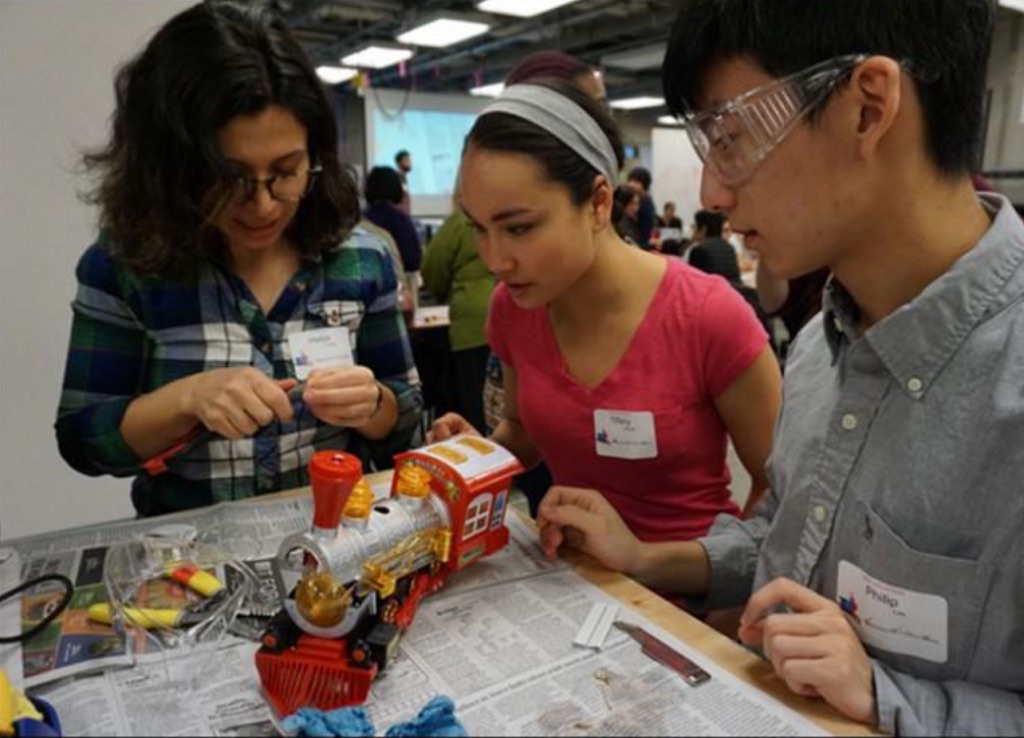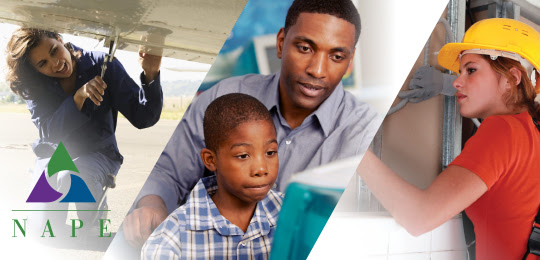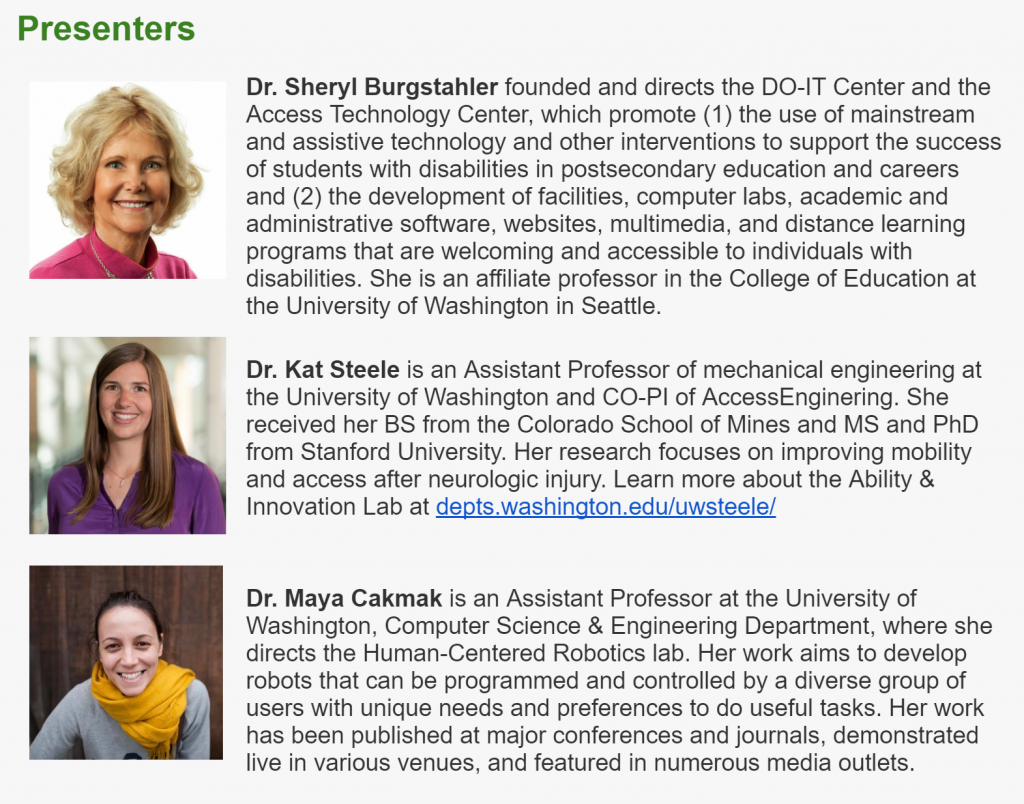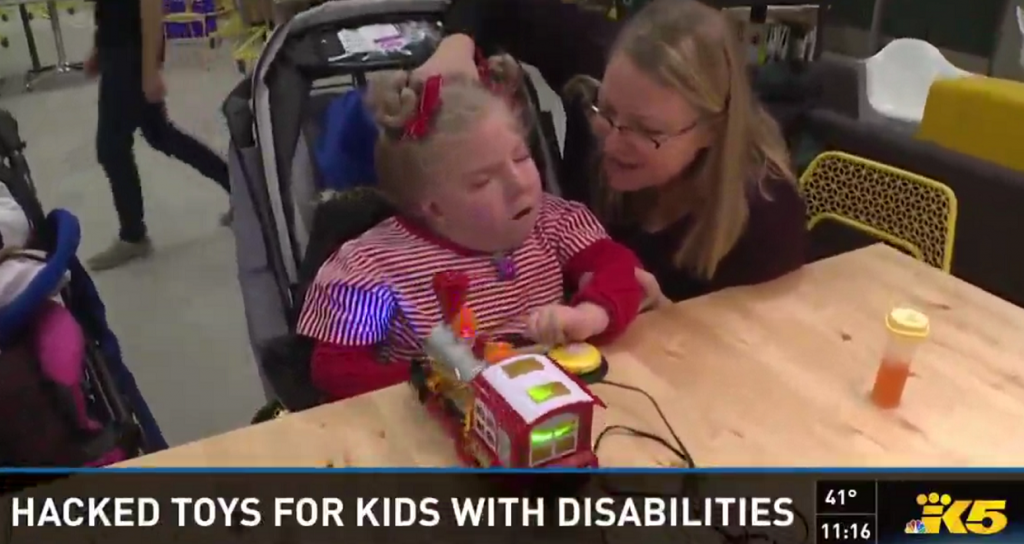Thanks to AccessEngineering and other DO-IT programs, I don’t feel like I’m pursuing my education alone, or that I have to figure out how to overcome obstacles that others don’t have to by myself.
AccessEngineering, an interdisciplinary universal design program co-led by Dr. Kat Steele at the University of Washington, was featured on the College of Engineering’s news webpage.
Since it’s launch in 2014, AccessEngineering has sought to champion the development of a diverse, well-prepared workforce of engineering graduates and university faculty. One of the key ways that this program seeks to promote this agenda is by increasing general participation of individuals with disabilities in engineering. AccessEngineering also aims to promote their core goals by improving engineering education. The primary means by which this group seeks to enrich the curriculum is by integrating disability-related and universal design content into engineering courses.
Dr. Kat Steele coordinates AccessEngineering at the UW with Dr. Maya Cakmak, an assistant professor in the Paul G. Allen School of Computer Science & Engineering, and Dr. Sheryl Burgstahler, director of UW Access Technology and the DO-IT Center.
To read about AccessEngineering program as posted on College of Engineering website, follow this LINK, or visit the program’s website.




